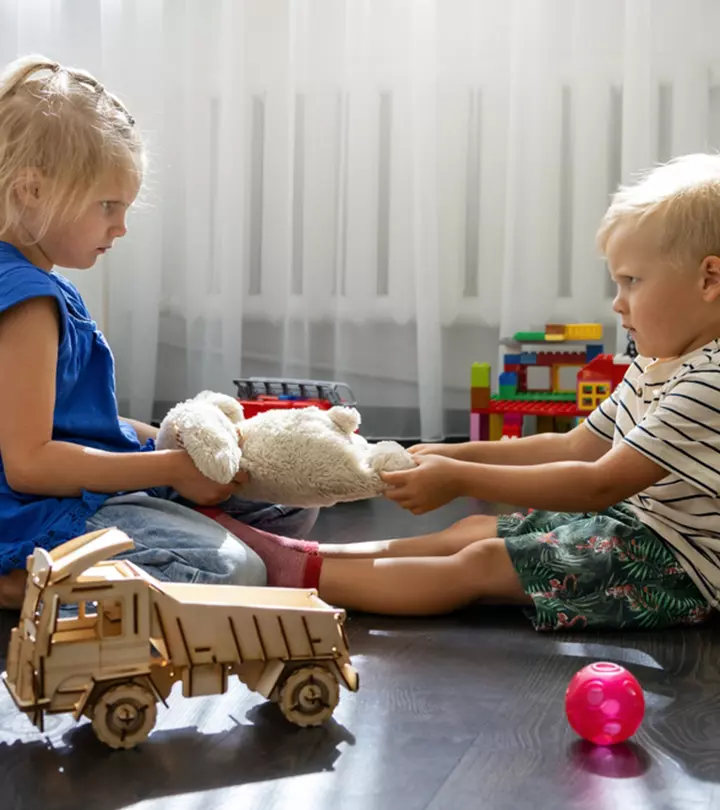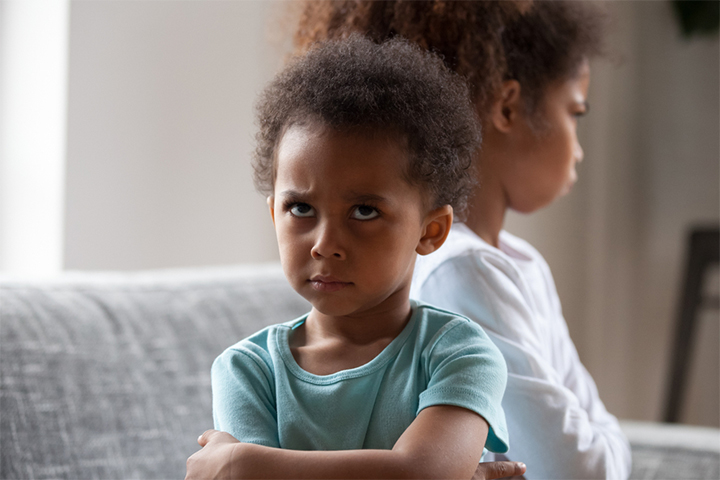
Image: Shutterstock
Every parent knows that a household with multiple children is an absolute mayhem. The screaming matches, the shouting and the unnecessary fights that can break out over the silliest of things can be frustrating and time consuming to deal with. And although you may chock it up to typical sibling behavior you want your children to actually like each other at the end of the day. But making the brawling and bawling stop is much easier said than done. Your children may fight with each other for a number of reasons. Maybe they are cranky, tired or hungry. Or maybe they are simply fighting for your attention. Whatever the case may be, putting a stop to these frequent fights should be high up on your list of your priorities. Here are a couple of things you can do to stop your kids from fighting with one another and restore peace back into your household.
1. Prevent Fights From Taking Place
The best remedy is prevention so your best bet to stopping a fight is to ensure that it doesn’t break out in the first place. This can be done by referring to your kids as a team, like saying, “You’re just a good dancing duo” or “You’re the best biking buddies I’ve ever seen.” Doing this will ensure that they are motivated enough to work together even if they don’t always get along. Moreover, this will keep you in the habit of appraising their positive interactions. When you make your kids feel like they are working together for your approval instead of constantly fighting each other for your attention, they will naturally develop a dynamic of helping each other out. You can also engage them in team-like activities like baking cookies or building a sandcastle. And compliment them when they are getting along.
2. Don’t Pass Judgment While Mediating
Image: Shutterstock
As a parent you are bound to love your children equally but when it comes to fights, you may unintentionally favor one child over the other and that’s not okay. Even if one of them is in the wrong, it’s your job to mediate between the two kids until they realize what they’ve done wrong. Taking one side over the other will only create further resentment between your kids. Instead of telling them who was wrong and who was right, go in and encourage your children to talk it out between themselves in a civilized manner. You can start by identifying the problem as small, medium or very big. Once you’ve put it in a category, ask your children to find a solution to the problem and help them reach an agreement on their own. Give them space to apologize to each other and make up. Remember, picking favorites is the worst thing you can do.
3. Teach Them Problem-Solving Skills
Image: Shutterstock
Every human being is different, so your children are bound to get into a disagreement with someone at sometime. Teach them to embrace their differences and learn to solve the problem at hand without being prejudiced and letting their ego get in the way. You can do this by setting some ground rules of what they can and cannot do while trying to resolve an issue. For example yelling and hitting or physically harming each other in any way is not allowed. Try talking to them about fighting and ways an issue can be solved. You can ask them to come up with their own ideas and give them a chance to implement them. You can even suggest that they each occupy a different room until they’ve cooled down enough to talk about it without being explosive.
4. Keep Your Distance
Image: Shutterstock
Parents. You don’t always have to intervene. As much as you’d like to separate them every time they get into a tiff with each other, sometimes the best thing to do is to leave them alone and let them figure out a solution together. Even your bubbly and overly energetic kids can’t fight forever. Eventually they will make peace with the situation and resolve the conflict by themselves. This will teach them how to compromise and deal with issues independently. However, if they are resorting to violence, physical harm or bullying, you must nip that behavior in the bud immediately.
Teaching your kids to get along and giving them the tools to resolve conflict amicably is easier said than done, but it isn’t impossible. With a little mediation, guidance and positive reinforcement, your kids will be the best of friends in no time. It’s okay to let the kids fight and figure out how to get along with different kinds of people every now and again. It’s normal. So don’t worry too much about it. Happy parenting.















